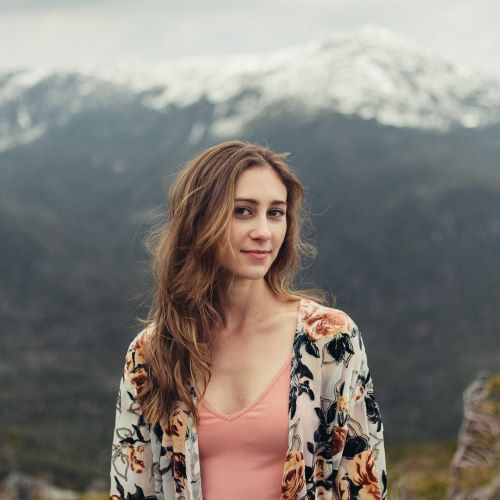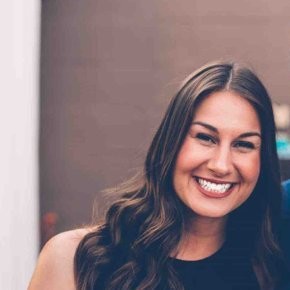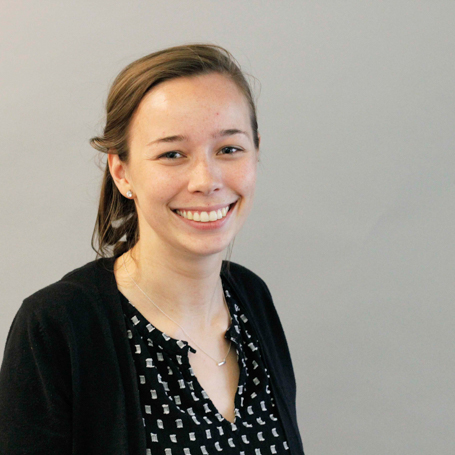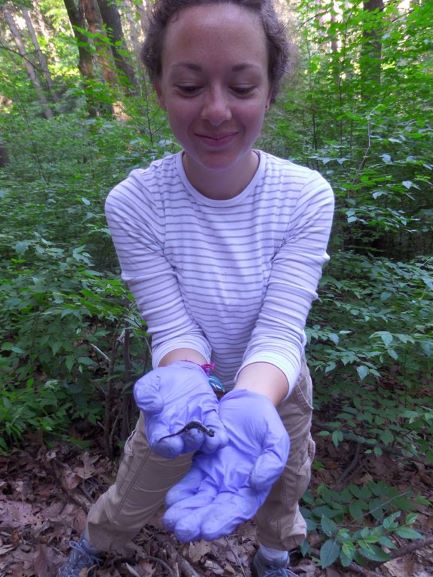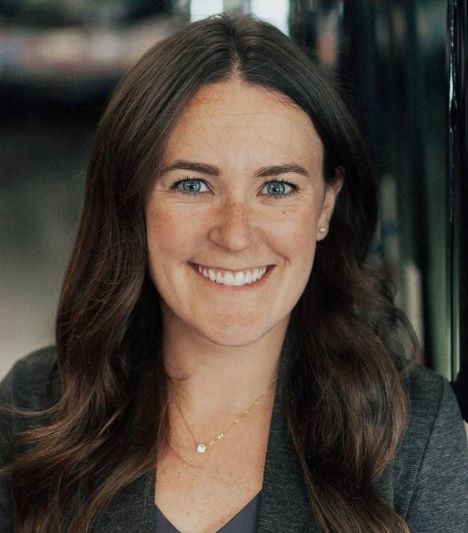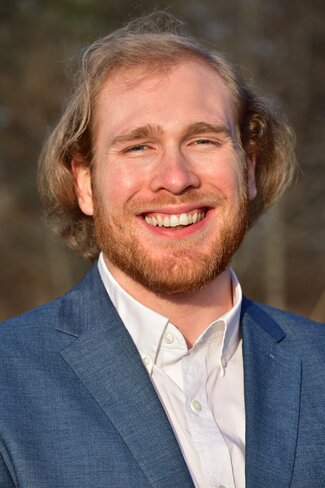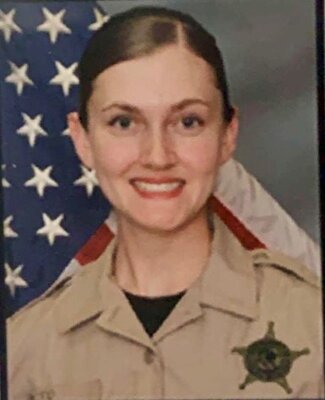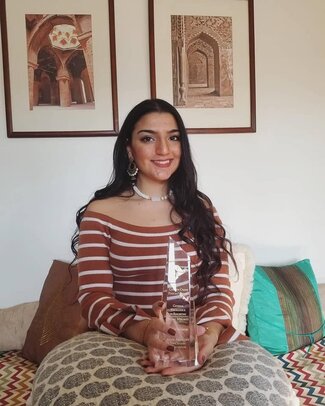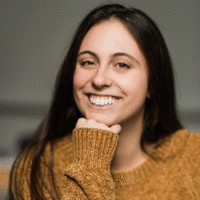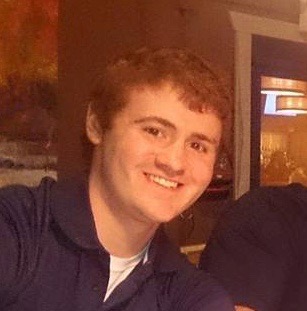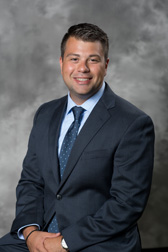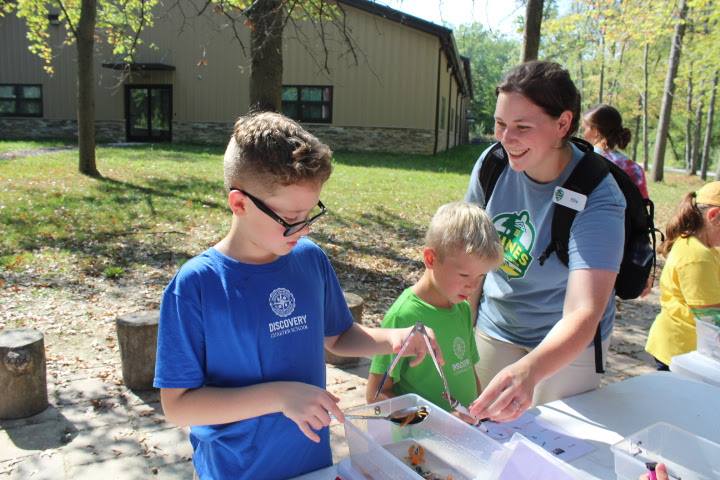Samuel James, Solutions Engineer at Axim Geospatial
What do you do on a typical day at Axim Geospatial?
It’s hard to define a typical day at Axim. I support more than 25 clients and often work on multiple client projects within a day. Our clients range from state or local government entities to international NGOs and from small businesses to multi-national corporations. There are also non-profit organizations sprinkled into our client portfolio.
The diversity of clients and their needs make each project unique, which makes each day unique. For one client, I could build an enterprise Geographic Information System (GIS) in the cloud or on-premise to support the client’s operations, such as emergency management, utilities, telecommunication, research, etc. For a second client, I could develop a web application that provides operational awareness to a specific team or the whole organization using their geospatial data and systems. For a third client, I could coach their team on how to think about geospatial data and how it can augment their operations or services.
These examples include a wide range of technical and domain knowledge that may or may not be applied to each project. However, each project, whether I am the sole technical resource or working with a team, requires clear communication and thoughtful planning for success. Therefore, each day involves strategizing and coordinating with teammates and stakeholders to support clients.
How did you get to where you are since you graduated from UIUC?
An insatiable desire to learn and community. I am often reading or working on projects. I find that whether a project is for work or yourself, the general process is the same: define a goal, research, develop, and assess your progress. Following this process, I have developed a variety of tools and skills that are transferable and useful for my work.
I also strongly value community and cooperative environments. I have developed great relationships with colleagues and clients since being an intern for the Village of Mahomet. These relationships are a source of encouragement, support, and insight into how others are pursuing their interests and career aspirations. Community is also at the heart of my work. While on the surface much of my work is technical, the motivation is to ensure clients feel supported and prepared with the necessary tools to tackle their challenges.
What is your favorite thing about your job?
My favorite thing about my job is that I get to be creative. Breaking down a request to its simplest elements and designing a solution addressing each element requires critical thinking, resourcefulness, and innovation. I enjoy the challenge many projects offer where I get to learn about a new domain or unique organization need.
What was your favorite thing about the ESES major?
I really enjoyed the multi-disciplinary character of the ESES major. I was exposed to many opportunities where I not only learned about paradigms for understanding human-environment interactions, but also got to apply the knowledge and skills to the real world.
For example, I remember working with graduate geology students to simulate an environmental site assessment of a fueling station for ESE 486. We collected historical documents, ground penetrating radar imagery, chemical readings, and other data. We then analyzed everything we collected and wrote a report where we made recommendations on the safety and suitability of the site.
Being able to apply what I learned in the class to a real world scenario and generate knowledge that could directly impact the community was immensely enriching. That class and many others honed technical and communication skills that I use regularly in my career.
What advice do you have for current/prospective ESES majors?
Be curious. Life is much more vibrant when you begin to explore the things that truly interest you. Whether it’s through your career, a hobby you pick up, or something else, take the time to learn about the things that pique your interests. Also, be open to opportunities even if they may not seem to be the most exciting on the surface. There is always something you can learn.
Be patient. You will have many seasons in your life, some will be joyous and some will be trying. Each one will come and go. It is important to be focused and to set boundaries. Understand what your goals are and be honest with yourself in what it takes to achieve those goals. Also understand that you will grow and your goals will change. It is okay to let go of old goals or dreams and it is okay to cut your losses if something isn’t working out. It is also okay to be unsure. Be patient with yourself and those around you.
Be confident. Trust that you are capable of adapting. Recognize the people who help you, and help others when you can.
Sarah Kater, Conservation Officer, Illinois Department of Natural Resources
What do you do on a typical day as a Conservation Police Officer?
Your day is always different, especially depending on the seasons. You do compliance checks, checking fishermen, hunters, boaters... You utilize different vehicles to do enforcement and compliance checks. This may be your squad truck, a boat, an ATV or snowmobile. We do a lot of self-initiated activity, as well as responding to calls.
How did you get to where you are since you graduated from UIUC?
After graduating high school, I looked at the job requirements to be a Conservation Police Officer. I tailored my life decisions to be qualified. To be a CPO I took a written test, physical fitness tests, psychological tests, went through a thorough background investigation, then went to the Illinois State Police Academy to be an officer, then a second academy to become a CPO.
What is your favorite thing about your job?
I truly enjoy that every day is different, as well as being outside so much. I get to help everything from plants, to animals, to humans. It is a great feeling to know that we are doing our most to ensure future generations get to enjoy the natural resources.
What was your favorite thing about the ESES major?
There is a wide variety of classes and subjects. I always felt I was gaining valuable knowledge daily. All of the professors were very enthusiastic about what they taught, it made you want to pay attention even more.
What advice do you have for current/prospective ESES majors?
There are more opportunities out there than you think. This is a very important major, learn as much as you can to go out and do the most good.
Nidhi Shastri, AIR New Voices Scholar 2021 | Business Analyst at Axiom Law | Science Researcher - Underknown | Creator - Model Minority
What do you do on a typical day at Axiom as well as with your podcasts, writing, and research?
During the day, I work full-time in the legal industry on business development for a company called Axiom. This involves a lot of communications – cold calling, brainstorming outreach to diverse legal teams, and handling marketing inbound leads for the company.
In the evenings/on weekends, I work on my various freelance jobs in the media industry. As an independent podcaster, I research and produce episodes of my personal podcast (Model Minority: Uniquely American) and script write/clip audio for MIT’s Chalk Radio Podcast. I also do research for online science videos called What If. Recently, I’ve joined the Association of Independents in Radio as a 2021 New Voices Scholar, which is helping me find more opportunities in the media industry.
How did you get to where you are since you graduated from UIUC?
I knew in the final months of my senior year (Spring 2019) that I wanted to pursue podcasting, but there wasn’t a very clear path. I spent the first year post-graduation doing odd jobs and applying to podcasting programs. I also spent a lot of time connecting with audio producers at places like NPR and WNYC by emailing those who inspire me. Another thing that helped me a lot was that I created my own podcast independently, which allowed me to create a portfolio of my work.
I’ve hopped around a lot in my career so far - I’ve worked as an activist and organizer for a healthcare non-profit during the pandemic, for the State of Illinois and City of Chicago government, in corporate America, and as a freelancer. For me, balance is key to sustaining myself financially and creatively in my career.
What is your favorite thing about your job?
In my view, podcasting is about sharing the stories and perspectives that are underrepresented in society. The beauty of the field is that you can meld just about any social issue (including environmental ones!) with this medium to create something life-changing for all involved - that's probably what I love most about it.
What was your favorite thing about the ESES major?
I love how versatile the ESES major is. Some of my podcasting skills are tips I picked up in environmental communications classes with Dr. Kanter - and they’re things I still use in my work today.
What advice do you have for current/prospective ESES majors?
It’s okay if you don’t have it all figured out now. In my perspective, you don’t need the biggest internship or the most flawless grades to do impactful work in your career (although having those probably doesn’t hurt!). The best thing you can do is to really ask yourself what your passion is, and be unafraid to experiment while trying to follow it.
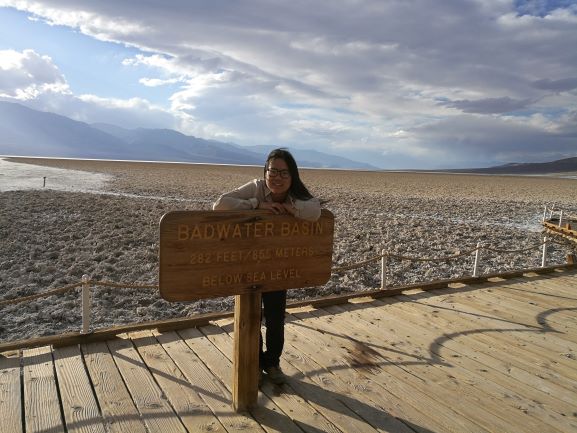
Edmund Fitzgerald, GIS Analyst for Kimley-Horn in Chicago
What do you do on a normal day as a GIS Analyst?
I work for Kimley-Horn which is an engineering/consulting company. I use GIS and drafting software to identify sites that would be ideal for solar farms. Then I work with developers to create topographic models and design the solar farms.
How did you get to where you are since you graduated from UIUC?
I got in touch with a recruiting firm and they got me in front of some companies. Eventually I got a job drafting at an engineering firm and got a lot of experience there, and then I moved to a new firm where I got to design solar farms.
What is your favorite thing about your job?
The problem solving. I really like going into work knowing that there is going to be a new problem to solve and work on. It’s very engaging and changes up what you need to learn how to do and forces you to understand other perspectives.
What was your favorite thing about the ESES major?
It is very well rounded so I think I had a big advantage going into the working world because of the foundation of knowledge that I got from ESES. It is really helpful to have a working knowledge about variety of areas in the environmental field.
What advice do you have for current/prospective ESES majors?
Always try to learn something from your experiences. Companies/employers don’t expect you to know anything coming out of school, they want someone who is going to be receptive and able to grow. Sometimes I feel that people think they are done learning when they graduate, but that couldn’t be further from the truth. Always try to learn something new.
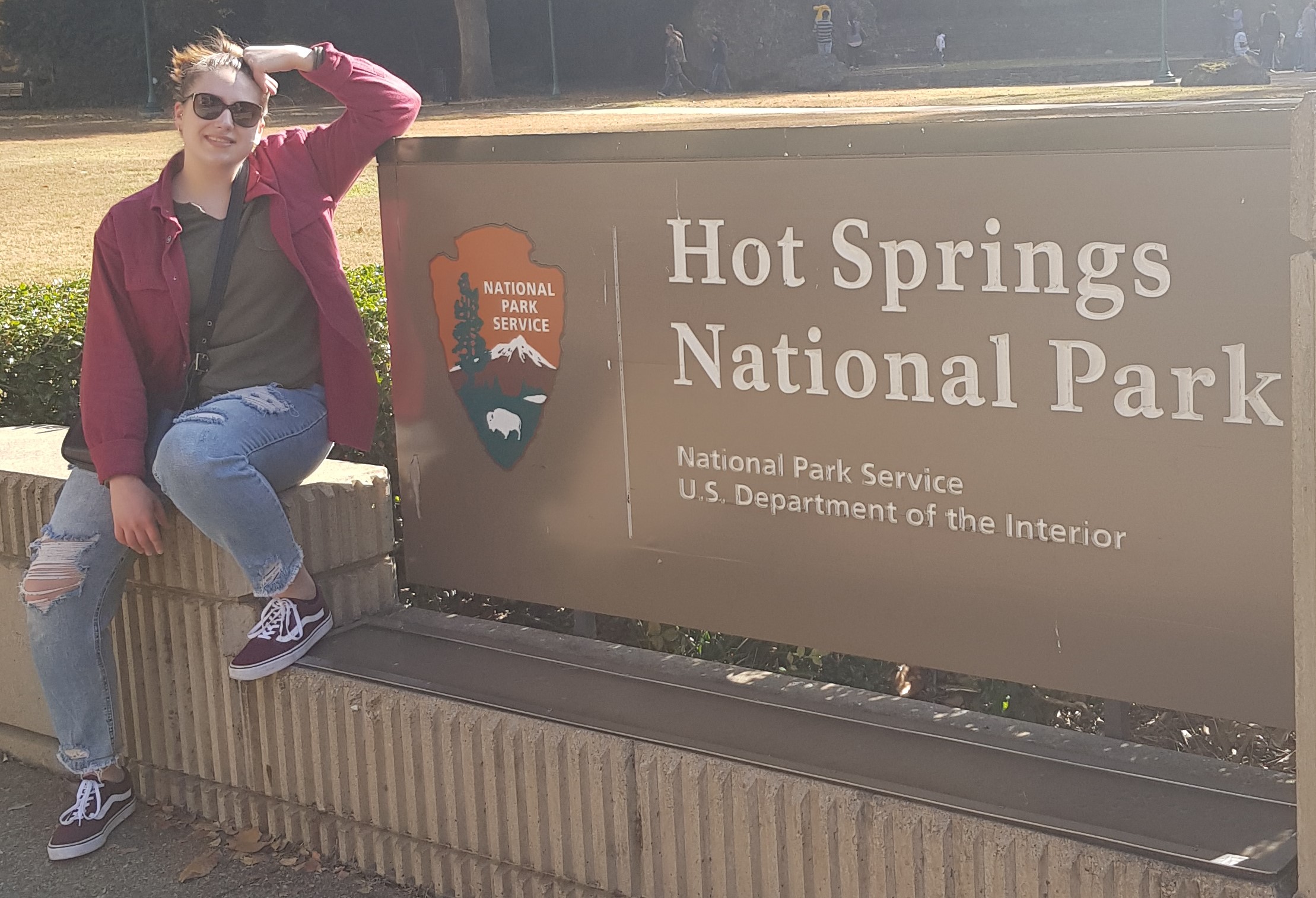
Joanna Pupa, Lab Technician 2 at the Metropolitan Water Reclamation District of Greater Chicago
Class of 2017
Double major in Chemistry and ESES
What is your current job title and what do you do on a normal day?
My current title is Lab Technician 2. There are quite a few tests that we run in the laboratories and we tend to switch every week. Some of our analyses are calculating suspended solids within samples, calculating total solids within samples, pH, alkalinity of samples, biological oxygen demand of samples, total nitrates, total phosphates within samples, etc. Every day we receive samples collected at various plants of the Greater Chicago area, then we test them according to their requested analyses. We then create a lab report and our results are sent to the EPA to make sure that the plants are running smoothly and meeting set discharge limits.
What do you like about it?
I really like my current position because I'm using both of my degrees every day. I come to work to do my laboratory work, and the goal is to make sure that clean water is released back into the environment. I feel the impact of my job every day.
By what path did you get to your current job?
A few years ago I interned at the District. Unfortunately, there's a huge wait to get employed. I had to wait a year and a half in another laboratory position in order to gain experience. Once the position opened, I had to pass a chemistry test in order to get interviewed. I passed the test and got my interview and the rest is history.
What was your favorite thing about the ESE major?
My favourite thing is how varied the major is. My experience in ESE is different from every other person's. I focused on chemistry and the science of the natural world, while also dabbling in environmental writing and GIS. The ESE major shaped me into a critical thinker and a problem solver which is helping me immensely in my professional life.
Do you have any advice for ESES students as they explore career options?
My main advice is to not give up. I had to take a few stepping stones to get to where I currently am and that's ok. It was discouraging at times and I felt like I was stuck, but my persistence and hard work is paying off. Another good piece of advice that everyone gives is to get an internship. It makes it so much easier to step into a career if you can experience just a taste of a full time job for a couple months, instead of being pushed into one for the next 45 years of your life. It's obvious advice, but very important. Even if it's just one internship for one summer, it can make a world of difference.
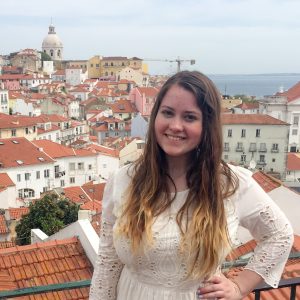
Brooke Wallery: JD Candidate, University of Illinois
Class: 2018
Concentration: Society and Environment
Minor: Spanish
How did you decide to go to law school? Is it something you always wanted to do?
I did not know I wanted to go to law school until after my first year of college. Over that first summer, I interned at my local Environmental Services Department in Texas and learned a lot about how environmental laws impacted policy at the local level. That first year I also learned a lot about environmental justice movements and creative ways environmental lawyers could use the law to improve communities and promote equality.
What do you want to do with your JD?
Honestly, I am still working to figure that out! With my background in environmental studies, of course I am very interested in environmental law. However, I am also just generally passionate about making the world a better place- whether that be physically in the environment or in more social spheres. I am looking forward to gaining more experience with different areas of the law and types of practice through internships and externships so that I might have a better answer to this question soon.
Do you think ESE helped prepare you for law school?
ESE was a wonderful pre-law major for me! I really benefitted from the flexibility of the major in a couple different ways. I was able to graduate a year early in the ESE major which meant I will only end up paying for six years of school rather than seven. I was also able to take a lot of interesting courses in a wide variety of disciplines. I took a lot of writing heavy courses, particularly with my concentration in Society and Environment, and this was good preparation for writing in law school. ESE also taught me a lot about how to craft arguments for environmental issues and this translates well to crafting arguments in general.
What was your favorite thing about ESE?
My favorite part of the ESE major was the flexibility. I was able to explore issues I was interested in– including the law, but also environmental health and environmental justice issues. I really liked that I was able to take courses in a diverse variety of disciplines. I graduated with some background in how GIS works and mineral identification, but also cultural shifts worldwide in reaction to climate changes and best practices for teaching children about nature. This ability to integrate different kinds of thinking has been really helpful in law school and really allowed me to explore as a curious learner.
Do you have any advice for students who want to go onto law school from ESE?
I really recommend joining pre-law organizations and taking full advantage of the pre-law advising services. The one disadvantage to having a more unique pre-law major is that you may not meet many other pre-law students or have specific pre-law programming within ESE. The pre-law advising service puts on really great programming and can help you with the specifics of achieving your goals for law school. I would also recommend taking full advantage of the flexibility of an ESE major. There are so many law related courses offered at U of I that you can totally take advantage of. You should also challenge yourself to take upper level courses that are interesting you. Starting to work at that higher, graduate level really helped me prepare for the academic challenges of law school and got me thinking about higher level issues and practicing writing skills.
You can find more information about our law school here.
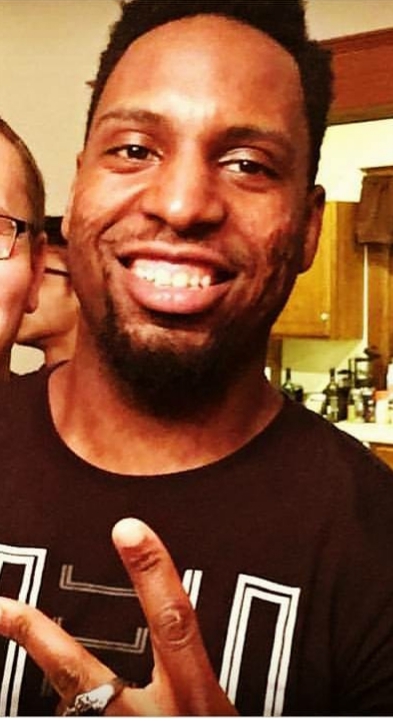
Reginald (Reggie) Jones
Graduated: 2015 (Summer)
Concentration: Science of the Earth System
Minor: Chemistry
What is your current job title and daily duties?
M
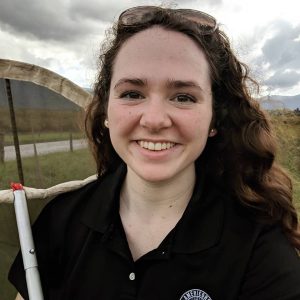
Allison Bate: Resource Education AmeriCorps Member Great Smoky National Park
Graduated: 2018
Concentration: Science of the Earth System
Minor: Geography & GIS
What do you do on a day-to-day basis?
My day-to-day changes on a seasonal basis. However, to sum it up, I teach and develop field trip and classroom programs. In addition to that, I am helping to create several multimedia projects focusing on safety and conservation within the national park.
What was your favorite thing about being an ESE major?
My favorite thing about ESE major is the versatility it allows. I transferred into the major late and was able to take both science and communication classes, increasing my interest in connecting the two fields.
What was your pathway to finding this job?
I spent two months after graduating refreshing a few different job boards twice a day. Suddenly, this opportunity popped up! Because I was looking in the environmental field, I looked mainly at environmental job boards. However, AmeriCorps members serve all over the US, and there are plenty of opportunities to get all kinds of experience through serving.
Once I discovered which AmeriCorps position I was applying for, I went to their online application, filled it out, and submitted it. It was straightforward, and I was quickly contacted by my future supervisor.
What’s your favorite thing about serving in AmeriCorps?
One of the great things about serving as an AmeriCorps member it that you qualify for an education award after completing your term. This award can be used toward student loans or future tuition costs.
Allison has her sights set on graduate school in the next few years using the education award to get her Masters in Education. She plans on pursuing environmental and conservation education.
Interested in learning more about becoming an AmeriCorps member? Click here.
You can follow Allison’s AmeriCorps adventures on instagram: @allyoftheparks
